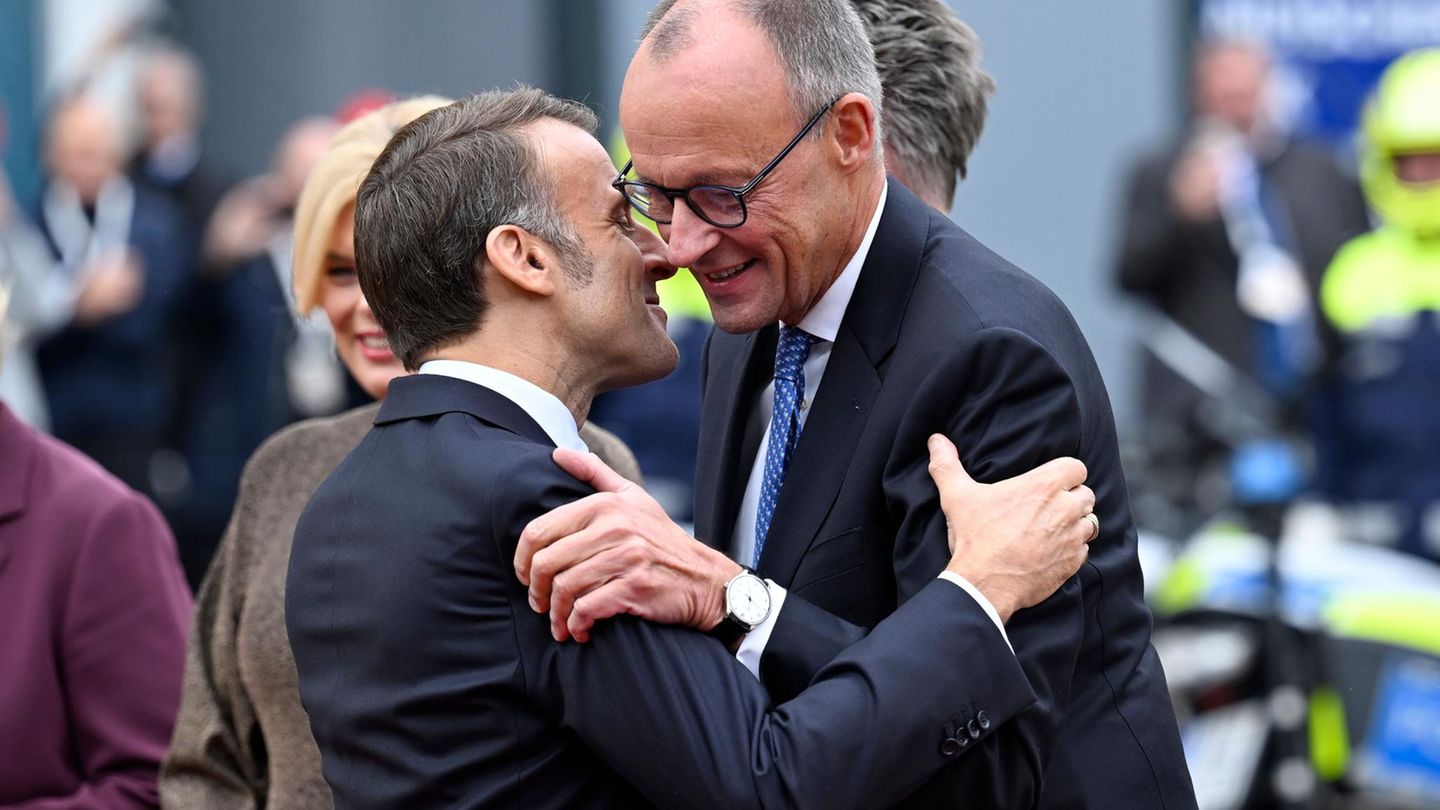comment
Neighborhood help specifically: Why Merz and Macron should swap
Copy the current link
Add to watchlist
Friedrich Merz as President, Emmanuel Macron as Chancellor. This would finally give Germany a great speaker and France a steeled expert in compromises.
Germany and France, quelle amitié! What a friendship! Since 1963, more than ten million young people have gotten to know the other country in an exchange program. There are artist scholarships, study grants and even German footballers who earn their money in France and vice versa French people who play in the Bundesliga. But why is there no exchange program for rulers?
You get our chancellor for a while, we get your president. Pourquoi pas? Why not? Never could it be more useful than these days.
Emmanuel Macron can talk, Friedrich Merz can compromise
Germany has a reasonably stable government under the leadership of Friedrich Merz, which is moving forward compromise by compromise, two steps forward, one step back, but at least. Nevertheless, the mood in the country is bad, Friedrich Merz is more unpopular than ever before, and the Chancellor failed to rouse and inspire his people even with his speech on Unity Day, which was accompanied by great expectations, and several talk show appearances.
France, on the other hand, no longer has any government at all, the length of service of prime ministers is shrinking, the country is slipping further into crisis, debts are rising, and the political rifts are getting deeper and deeper. But France has a president who can give great, rousing speeches. If necessary, also in German.
Couldn’t you swap it? Wouldn’t it be to the benefit of both countries if Macron had the big say in the Bundestag and Merz forged compromises in Paris?
Emmanuel Macron is predestined for a German audience. Since the beginning of his presidency, he has repeatedly given speeches that have caused a particular stir in this country. For years, Angela Merkel had to be accused of not responding appropriately to Macron’s big plea for Europe in 2017 at the Sorbonne University. In 2024, Macron spoke in the Bundestag to say goodbye to the late Wolfgang Schäuble. The FAZ wrote about a “brilliant speech” and headlined its article: “Macron shows the Germans what they are missing.” And let’s be honest: Even on the most recent day of unity in Saarbrücken, it wasn’t Friedrich Merz with his, well, statements about the state of the country that inspired the audience. It was Macron with his speech on the state of democracy, it was the French president with his mixture of relentless self-criticism and tireless willingness to move forward.
Imagine if Macron were to praise the Germans for the restructuring of their welfare state, the reform of citizens’ benefits, and pensions up to the age of 70. That would certainly be an experience.
When Macron speaks, he takes risks, wrote Nils Minkmar, a Saarlander with a German and French passport, in the Süddeutsche Zeitung some time ago. “He then does not embody the state, which expresses itself in well-coordinated and often narcotizingly boring considerations and announcements, but rather he acts as a political subject and exposes himself.” Speaking, Macron walks into the middle of the most dramatic conflicts.
Of course, that is exactly his problem. Because Macron has led his own country to the edge of the abyss with, or rather: despite many beautiful words. He didn’t bring about the reforms that France needs, but that too many people desperately don’t want. Macron himself exacerbated the crisis when he suddenly called new elections, the political purpose of which no one understood, and after which France woke up with an even more complicated majority than ever before.
“In France, compromise means compromising yourself”
Now France appears virtually ungovernable. The ability to achieve political balance in parliament is completely underdeveloped. Since President Charles de Gaulle, France has been geared towards clear majorities, says Daniel Cohn-Bendit. One camp has the majority and then it governs through. According to Cohn-Bendit, the parties and the political public have never learned how negotiations for a common government program are conducted. As long as the French do not understand that a compromise does not mean compromising themselves, but rather creating the ability to act, the political drama will continue, said the German-French Green politician on Deutschlandfunk.
The French are familiar with so-called cohabitation, i.e. the coexistence of a president from one party with a majority in the National Assembly from another camp. But the last forced togetherness of this kind was between conservative President Jacques Chirac and socialist Prime Minister Lionel Jospin between 1997 and 2002. It went down in history as the “Blocage”. At the time, the Konrad Adenauer Foundation judged cohabitation: “It is not good for the country.”
Friedrich Merz would be the ideal man to teach the French a willingness to compromise. He has shown flexibility and, together with the SPD and the Greens, solved the debt brake before forming a government. He makes agreements against his convictions but for coalition peace, appeals to his own ranks for understanding for the sensitive Vice Chancellor from the SPD and now declares everywhere that the most important thing in reforms is to involve all citizens. Friedrich Merz, who wanted to do everything differently, now governs as consensus-oriented as Angela Merkel once did. And that’s exactly what the French need now – n’est-ce pas?
A final advantage of this swap would be that Macron and Merz could expect praise and prizes in the other country for the very thing that constantly brings them criticism at home. Many French people can no longer listen to their president’s beautiful speeches, or as Nils Minkmar put it: “There are enough French people who roll their eyes or give a gag reflex when Macron just opens his mouth.“ Friedrich Merz, on the other hand, could not only escape his devastating poll numbers, but also the complainers in his own ranks who expected him to take a clear stance and govern and who now have to explain several broken election promises to their supporters.
A swap at the political top would take the German-French friendship to a whole new, but extremely realistic level: practical neighborly help for mutual benefit. On y va? Let’s go?
Source: Stern
I have been working in the news industry for over 6 years, first as a reporter and now as an editor. I have covered politics extensively, and my work has appeared in major newspapers and online news outlets around the world. In addition to my writing, I also contribute regularly to 24 Hours World.






